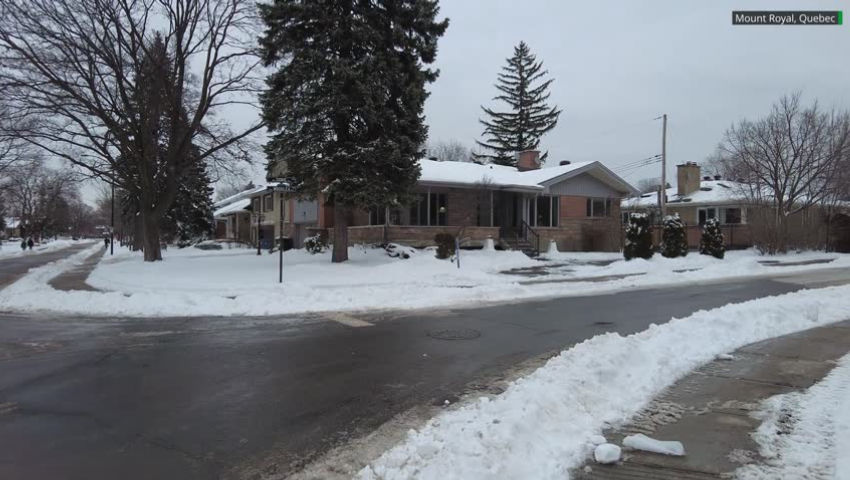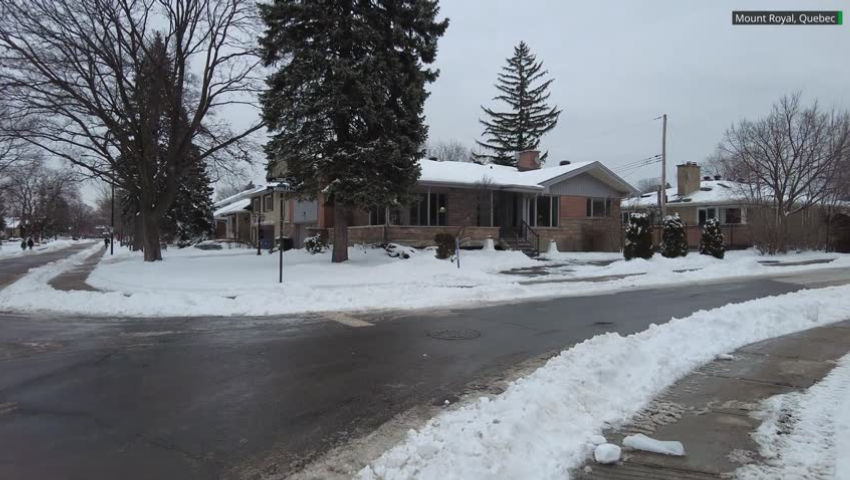Canada’s New Housing Minister Is Already Saying the Wrong Things
Canada’s New Housing Minister Is Already Saying the Wrong Things

videos.abnormalbeings.space
Canada’s New Housing Minister Is Already Saying the Wrong Things

Canada’s New Housing Minister Is Already Saying the Wrong Things

Canada’s New Housing Minister Is Already Saying the Wrong Things

I think their plan is: Increase supply of (actual) starter and family homes that have been lacking -> these homes are sold at low prices and start dragging the rest of the housing market lower -> government chops interest rates and increases loan guarantees and incentives as much as needed to prevent prices of other homes from falling
All of these actions will help improve housing affordability and make homeownership more accessible, but not all of them will lower prices, some of them cause price inflation. I think he's intending to balance these to keep the market neutral. Whether they can successfully pull that off, remains to be seen. But Carney's not stupid, he knows he can't tank the housing market. There are literally millions of Canadians depending on the value of their house, for better or worse, it may be a bad and stupid situation but we're deep in it now and Carney's not going to rip the bandaid off yet. His goal will be to stop it from getting too much worse and try to keep it stagnant for a long time so that incomes and economics get a chance to catch up.
Yes it would be nice if you just got a reasonably priced house right out of the gate and didn't have to take out a low interest mortgage to cover the unreasonable additional cost. But we're not there yet, and I think Carney's plan is going to take that into account.
We'll see if I'm right. This is all speculation.
Regardless of how smart Carney is, they couldn't tank the housing market even if they tried. I don't know why people keep mentioning this as if it was even a possibility. This is the same as people who think someone can just happen to work out too much and end up looking like a monstrous bodybuilder. This is not a thing that is achieved easily enough to consider.
To be honest I don't really get what's the scenario you're envisioning here. Making homeownership more accessible is lowering prices relative to purchasing power. This is what lowering prices means, and this is what making it affordable means. You can't say the intent is to make it affordable while not decreasing prices, these are at odds.
One trick here is using inflation to alter the context of "increase" and "decrease" means. Prices have to decrease in real value (net of inflation), slowly and steadily. In order to keep homeowners in line in their illusion of preserved wealth, prices have to increasing nominally (not counting inflation). So the formula is this: make sure that housing prices climb steadily below inflation for a very, very long time.
I don't know why you're missing this part of the equation:
You said it yourself. The other side of that equation is purchasing power. Remember that doesn't just mean income or grants, it's purchasing power. Doing things like removing tax burden, increasing mortgage terms, lowering interest rates and guaranteeing lower credit mortgages all improve purchasing power. This changes the ratio of prices to purchasing power, making homes more affordable WITHOUT lowering home prices and potentially even raising them. I get that it's not the massive drop in home prices many people want to see, but it will make housing more affordable.
@cecilkorik@lemmy.ca 's point is subsidizing first time buyers allows for affordability without lowering prices. It in fact, increases prices of starter homes because of the subsidy, but only while the subsidy lasts.
A balanced policy would be government construction companies that build small market housing that is affordable due to being small, that ramps activity up and down based on trailing 5 years home appreciation being 15% (3%/year).
This is a zero cost program. Subsidies cost money, without solving problem.
Is there any reason to think that is at all likely ever to happen? Incomes will surely only rise if employers are prepared to pay people more, and all the signs are that employers, particularly large ones, will do pretty much anything before they'll pay ordinary employees more.
Yeah this is not technically impossible, but extremely unlikely.
I agree, it's not fair or ideal. We face a huge challenge on the price and income side of things and it is not an area that is easy to solve. That's why I think it's smart that he's focusing on the things that are (relatively) easier to solve, like creating more supply of more right-size, right-place, budget-oriented homes, and providing more access to cheap debt so that people can afford both those budget-oriented homes and the even more inflated prices in the rest of the market, even if they don't get the additional income. I think those are not only achievable goals, but are going to improve the situation in a measurable way, even if it doesn't "solve" it in the ideal sense and still leaves Canadians with a lot of (partially government-backed) debt.
To paraphrase Batman, it's not the solution we deserve, but it is the solution we need right now.
I don't know what his plan is on the longer term for dealing with Canada's low productivity and lagging incomes, but I'm looking forward to finding out.